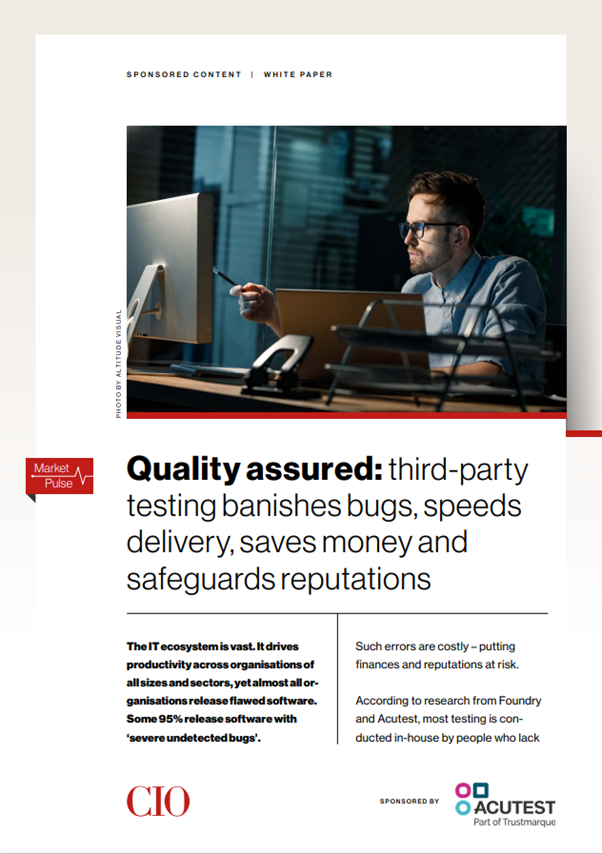
Undetected bugs found in most software releases
The vast majority of organisations are releasing software with major bugs, according to research by Foundry and sponsored by Acutest (part of Trustmarque)
In today’s fast-paced digital landscape, businesses are constantly striving to enhance their software development and release processes. However, a recent whitepaper has shed light on a critical issue in the industry. This eye-opening revelation backs up the urgent need for a transformative shift in testing and assurance strategies before software deployment. The publication was a collaboration based on the findings from a market research sponsored by Acutest, published by CIO and developed by Foundry-IDG, a global provider of intent data.
This comprehensive report offers an in-depth analysis of the current state of testing and assurance practices. It also highlights some practical recommendations to transform your software release process.
95% of organisations surveyed release software with bugs, be one of the 5% getting it right.
Continue reading to discover a snapshot of the findings or download the whitepaper here.

The hidden perils of undetected bugs
Software bugs can lead to disastrous consequences for businesses. Severe undetected bugs can result in costly downtimes, tarnished reputations, and, worst of all, compromised customer trust. An alarming example was the NatWest IT failure in 2012 which costed £125m and left 16.9 million accounts inaccessible. While software testing and assurance are essential, the prevalence of undetected bugs indicates that current practices are usually taken for granted.
Tackling emergencies with external expertise
According to the research, over one-third of organisations are turning to external testers to address emergency situations. This statistic highlights the necessity of having a robust testing framework in place, even if it requires hiring additional support to internal testing teams. By engaging external testers, businesses can access specialised expertise and resources, ensuring that emergencies are handled swiftly and effectively.
Engaging early for budget optimisation
The whitepaper emphasises the importance of early engagement in the testing and assurance cycle. By involving testers from the outset, organisations can identify and rectify potential issues in the early stages of development. Ultimately, it can save significant time and resources. With restricted budgets, this proactive approach becomes even more crucial to avoid last-minute emergencies and the subsequent additional costs.


